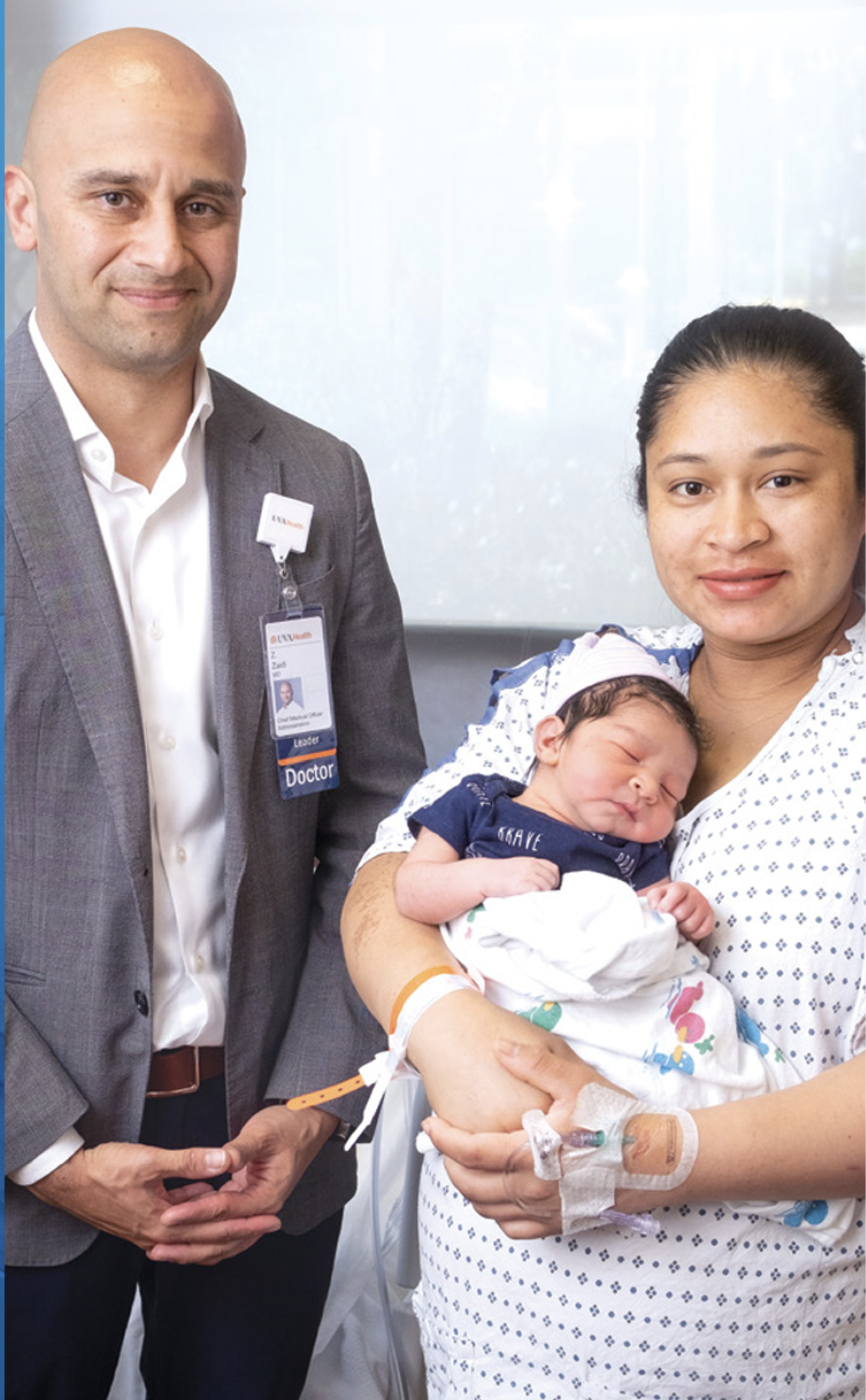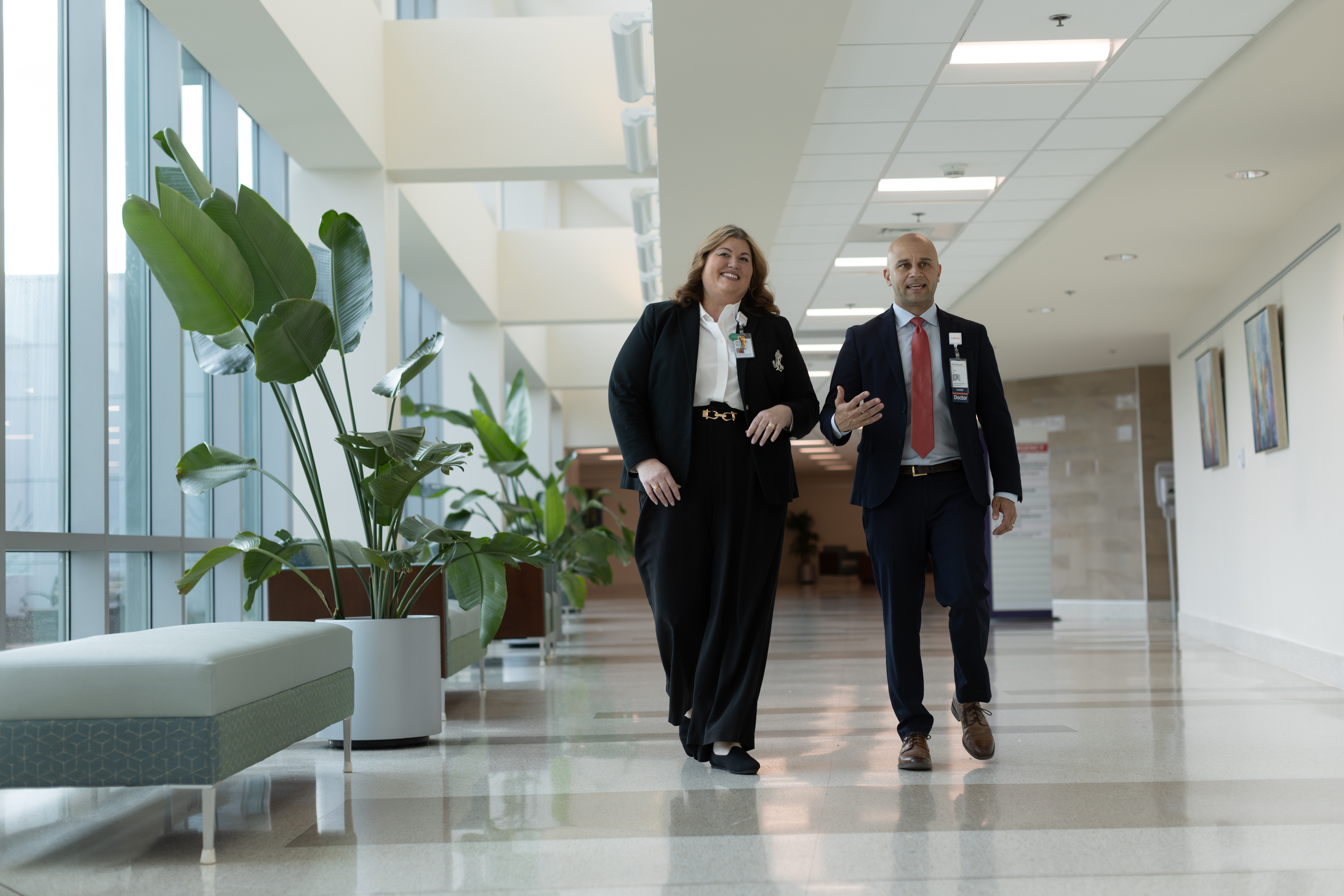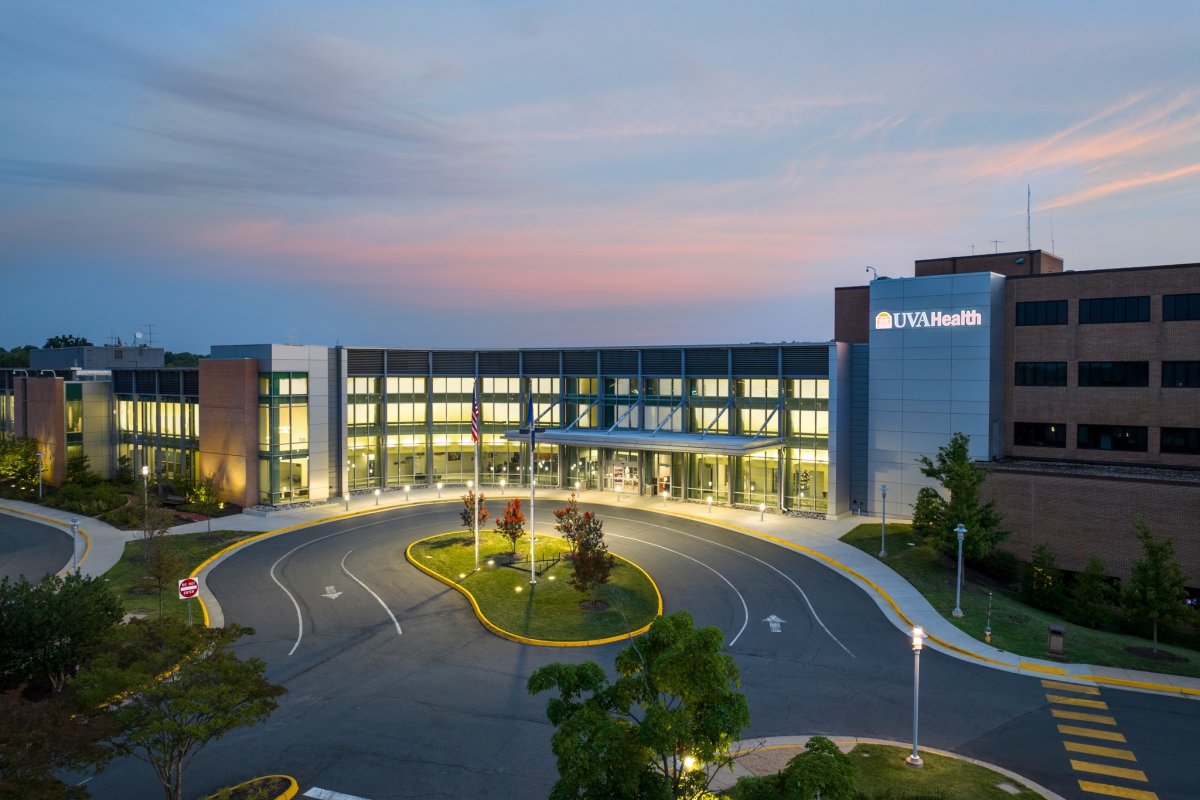All Together Now
A 2020 national study found that the top three reasons patients choose a particular hospital are its reputation, location, and recommendations from their primary care physicians. What if the hospital in your community was interconnected with the one your internist recommends for the most comprehensive services? Suppose you could receive the same level of care wherever you are?
What began in 2016 as a partnership between UVA Health and Novant Health to operate Culpeper Medical Center, Haymarket Medical Center, and Prince William Medical Center has evolved into a model of coordinated care. Since UVA Health acquired full ownership of the combined entity in 2021, UVA Health’s flagship University Medical Center in Charlottesville, the three community hospitals, and a growing network of clinics statewide have evolved into a seamless system. Today, regardless of location, patients have equal access to a world-class academic medical center, including the first National Cancer Institute-designated Comprehensive Cancer Center and the No. 1 pediatric hospital in Virginia.
UVA Community Health Chief Medical Officer Zan Zaidi, MD, defines coordinated care as anticipating the needs of patients and “helping them navigate a complicated healthcare system that sometimes involves primary care, sometimes specialty care, sometimes emergency care, what comes before, what comes after.”
Dr. Zaidi is pictured here with a patient, Keylin Soto, whose story illustrates the extraordinary impact of coordinated care. Soto, a 24-year-old mother of a 6-yearold son, was approaching the third trimester of her second pregnancy when she was diagnosed with a large pelvic mass. She was receiving prenatal care at a community clinic but required specialty care. Her mass was growing, and she was in pain; nonetheless, she was initially unable to get an appointment.

The day after the clinic referred Soto to UVA Health, she had an ultrasound in the morning and an appointment with a gynecological oncologist that afternoon. Five days after her referral, she had a successful operation in Charlottesville, and three months later, she delivered a healthy baby at UVA Health Prince William Medical Center in Manassas.
Providing patients like Soto with timely treatment from the most eminent specialists requires deft coordination and the ability to develop relationships between providers. Dr. Zaidi’s counterpart on the nursing side, Michelle Strider, RN, BSN, MBA, CPHQ, described her role in integrating care as a panelist in a town hall, “One UVA Health Team,” last January. “I’ve had a front-row seat to watch UVA bring its footprint across Northern Virginia,” she recalled.
Strider joined UVA Health in 2007 and began serving as chief quality officer of UVA Community Health in 2015. In January 2024, she was named chief nursing officer of UVA Community Health, a role she’d assumed on an interim basis in July 2023. “We know that increased access to care across all of our communities is really the key to improving health across Virginia,” Strider.
“We know that increased access to care across all of our communities is really the key to improving health across Virginia,” Strider said.
She pointed to the numerous benefits of coordinated care, including decreased costs for patients and providers, shorter waiting times for care, and briefer hospital stays (which, in turn, reduce the risk of healthcare-acquired infections).

Strider and Zaidi meet nearly every day to strategize initiatives, including expansion plans. Both previously worked for Novant (she at Culpeper Medical Center, he at Haymarket and Prince William Medical Centers). Yet even their vast experience is tested by an acute shortage of providers, particularly internists in the rural areas that the community hospitals and clinics serve.
“In order to be there for our community, we have to continue to expand access, and one way is through the recruitment of primary care physicians,” Strider said. “We still have areas of our footprint where the patient-to-provider ratio is nearly double what it is in other parts of the U.S.—sometimes close to triple.”
Dr. Zaidi’s parents, both physicians, worked in the same community for 40 years. Today, doctors are in such high demand that he believes “you have to recruit harder than your competition” and create a culture “to make this a final stop for our providers.” The efficiency of coordinated care is an incentive for practitioners.
They are making progress. Strider mentioned two new staff members who chose to work at Prince William Medical Center. One was a safety attendant with plans to become an RN and then a nephrologist, who had had a kidney transplant at UVA Health University Medical Center; the second, who works in the ICU, cited his experience as the parent of two children who had undergone cardiac surgery, also in Charlottesville. For Strider, their choice of UVA Community Health validates the appeal of UVA Health as a workplace. It suggests that people are starting to see UVA Health hospitals and clinics statewide as one entity.
“Our community is already connecting the UVA name to the services provided within the other facilities,” she said. “I thought that was an extraordinary testament to the fact that the community sees this as an extension of UVA.”
As integrated as the system has become, all contributions to community hospitals stay local. Private philanthropy plays a crucial role in bolstering capacity and expanding outreach to additional communities.
“Access to care means that people in all communities are able to take advantage of world-class care, regardless of what ZIP code we live in,” Strider said. “Coordinated care is the only avenue to do that.”
As his tenure with the community hospitals approaches the halfway point of his parents’, Dr. Zaidi sounds like he is just getting started. “I think we’re fortunate to be part of such a well-resourced, internationally known health system,” he said, “where we offer the best of everything to our patients.”
To learn more about UVA Community Health and the impact coordinated care has on patients at UVA Health, please contact Felicia Blow, Executive Director, UVA Community Health Foundation, and Director of Development, Community Hospitals, at fblow@virginia.edu or 434.962.7588.

